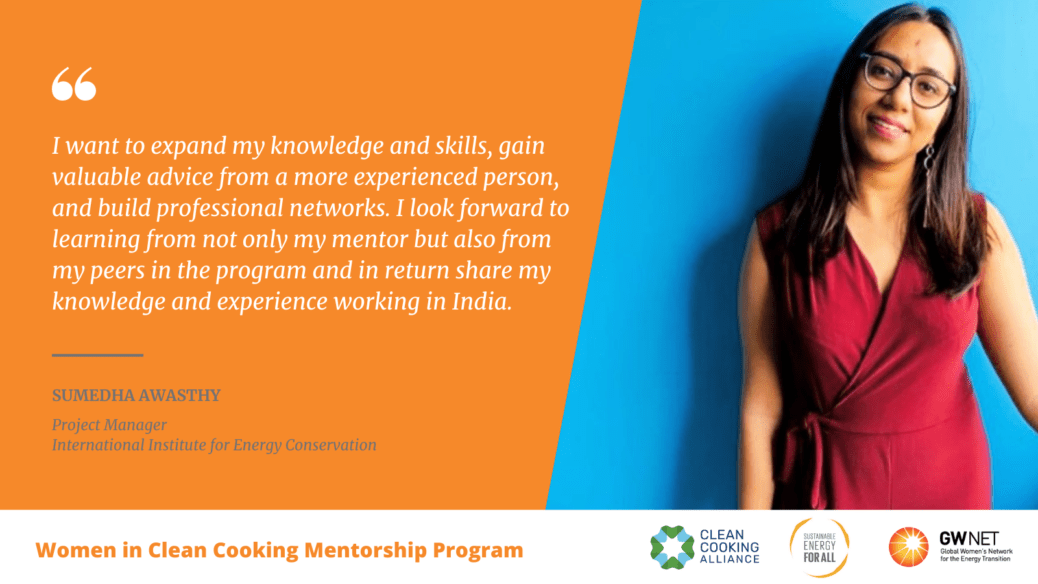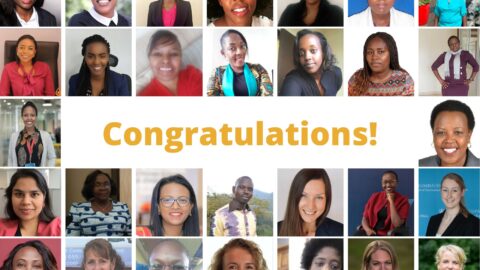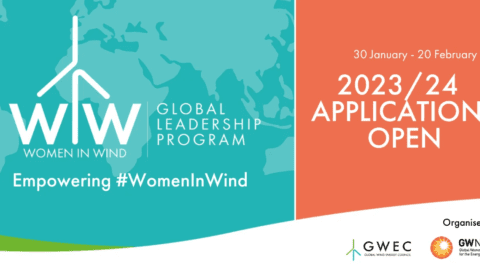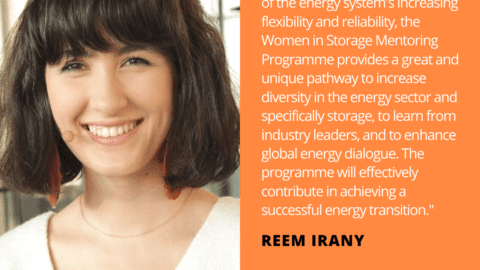GWNET brings you the 6th instalment of the “Meet the Women in Clean Cooking” series which celebrates the work and achievements of the women who are part of the Clean Cooking Mentorship Program. This program is made up of 30 mentee-mentor tandems, with mentees from over 15 countries. Meet Clean Cooking mentee, Sumedha Awasthy, Project Manager at the International Institute for Energy Conservation in India.
1) Tell us a little about yourself. What do you love most about what you do?
I love my work as I feel it actually makes an impact. I work on programs such as clean energy access and climate resilience agriculture. In all these programs, I work with the community to understand their problems and then try and find solutions.
2) What were your goals when you started working in clean cooking? How have these evolved?
I have very recently started preparing proposals for clean cooking and still have a long way to go. But the thing which I saw, realized and understood is that clean cooking is a basic service necessary to lead a healthy and productive life and it saves households time and money. Efficient cookstoves reduce the amount of fuel needed to cook, thus reducing the burden on families who would otherwise have to collect it, buy it, or trade their food for it.
3) What are the opportunities for clean cooking in your country?
A 2018 survey by CEEW in six states of India—Bihar, Jharkhand, Madhya Pradesh, Odisha, Uttar Pradesh, and West Bengal—showed that only about one-third of the rural population use LPG as their primary cooking fuel. With near universal coverage of LPG connections now within sight, the next policy challenge is to sustain the use of clean cooking energy, and to transition households away from the use of traditional fuels.
4) What challenges have you faced in the sector? Can you tell us how you overcame (or are overcoming) this challenge(s)?
It is evident that the economics i.e. prices of cookstoves and fuels, determine a particular fuel choice. Admittedly, collection of fuelwood/biomass and their health costs put a huge burden on women, but as such fuels are either free or low-priced in most cases, the economics work out favourably for the household. Moreover, a woman’s time and the health impacts of burning biomass are not accounted for in such calculations.
There is also the issue of reliability. Cooking has to be undertaken at a certain time daily. Presently, the on-demand supply of LPG, especially in far flung areas, is still not well established. The situation is akin to those times in cities when double cylinder LPG connections were not the norm and there was no question of piped gas. In those days, even in urban households, LPG was used sparingly and most of the cooking was done using kerosene or fuelwood.
The same is the case with rural India today, where, on account of basic economics, while LPG is an aspirational fuel, it is biomass that helps prepare two square meals a day; day after day.
5) Where would you like to be in 5 years and how can this mentorship program support this long-term goal?
In 5 years I would like to run a successful clean cooking stove program which would make an impact not in terms of paper but in terms of real beneficiaries. I think this mentorship program will help me learn from other people’s experience and help me develop in the field.
6) What advice would you give to women hoping to join the clean cooking sector?
This is the need of the hour as clean cooking not only helps women in each house but has overall health benefits for each family member.
Read more about GWNET’s mentoring programmes here.











